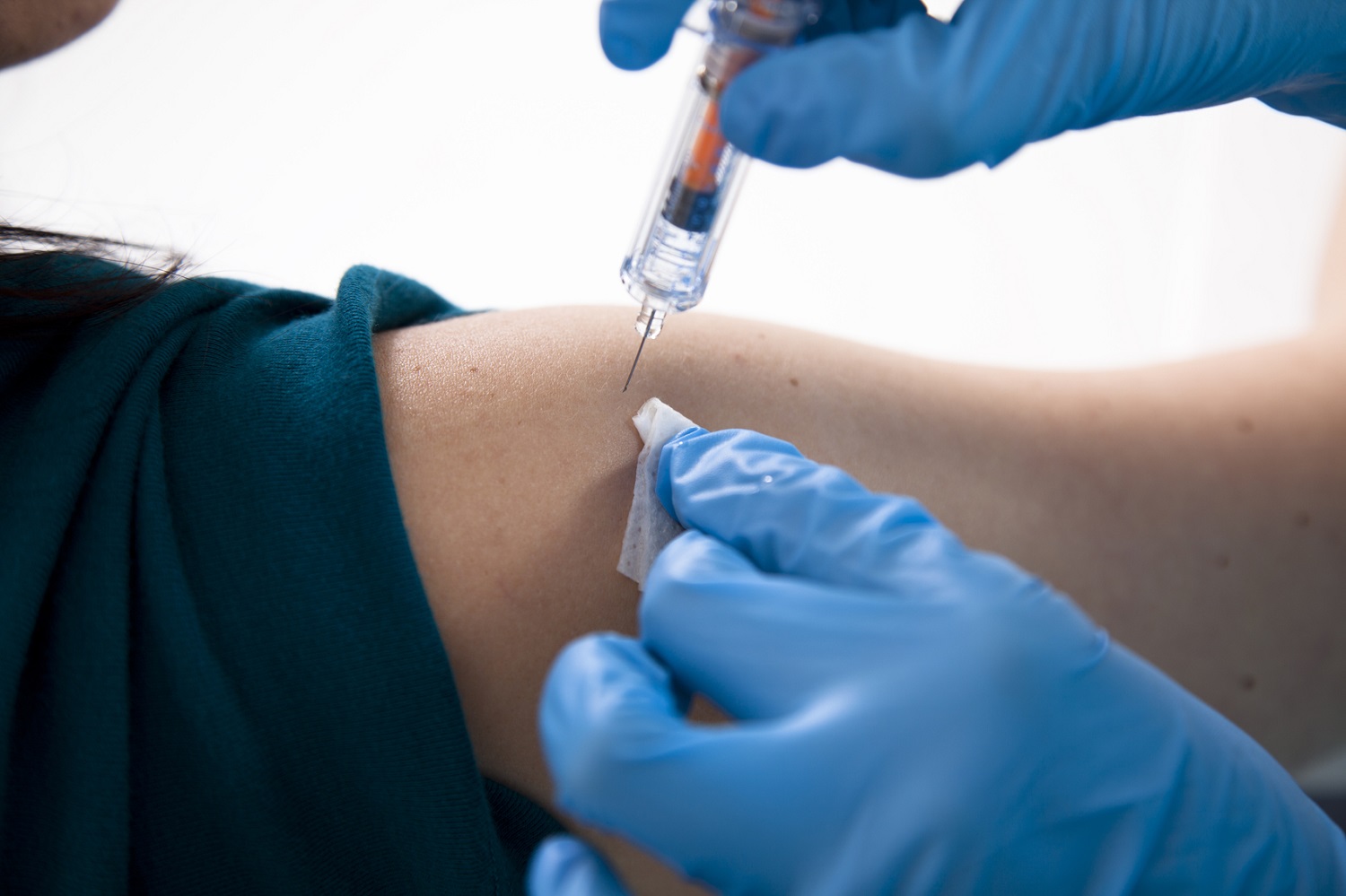Flu shots really work, so roll up your sleeve

For the best protection against flu this season, get your shot by the end of October. (Linda Brannon/Alabama NewsCenter)
If you are among those wondering whether to get vaccinated against the flu, the experts say quit your waffling and take the shot.
It’s the single best thing you can do to protect yourself, and to help prevent flu from spreading.
Getting the flu is no joke, especially if you are older. Over a period of 31 seasons between 1976 and 2007, estimates of flu-associated deaths in the United States range from a low of about 3,000 to a high of about 49,000 people, according to the Centers for Disease Control and Prevention (CDC). During recent flu seasons, people 65 and older accounted for 80 percent to 90 percent of flu-related deaths.
Most flu activity occurs between October and May, with flu season typically peaking between December and February. The CDC recommends everyone 6 months and older get a flu vaccine by the end of October each year, but getting vaccinated later is acceptable. Remember, flu season lasts until May. But it is also important to remember it takes about two weeks after your vaccination for the full antibody effect to develop and provide flu protection, so getting your shot by the end of October is preferred.
Change in guidelines
The biggest change to national guidelines this flu season is related to the child-friendly nasal flu vaccine, FluMist. The vaccine was deemed largely ineffective by the CDC, although at least one study has raised questions about the finding. Most physicians in the United States have stopped using it.

The flu is a misery for anyone and can be deadly for high-risk populations. (iStock)
That shouldn’t stop you from vaccinating your kids; children are among those who face a greater risk of flu-related complications. Every year, thousands of children under 5 are hospitalized because of influenza. Children younger than 2 are especially vulnerable. Last year, more than 70 children younger than 16 died from flu complications. Children with health problems such as asthma or diabetes are also at a higher risk of developing complications from the flu. Pregnant women and women up to two weeks postpartum are also among those who face a higher risk from flu.
If you are still wrestling with the decision to get the flu shot, think about this: the more people who get the flu shot, the less chance of a severe flu outbreak. And while the flu isn’t fun for anyone, it can be deadly among high-risk groups. So getting a shot not only reduces your risk of contracting the flu, it helps your community stay healthier.
Additional steps

A flu shot is good protection against getting sick, and adopting certain healthy behaviors can further reduce your risk. (iStock)
In addition to the shot, some simple preventative actions can help stem the spread of influenza. Wash your hands frequently. We touch shared surfaces numerous times each day. We touch our faces even more. Once you touch a shared surface – a doorknob, elevator button, an ATM machine – and then your mouth, eyes or nose, you are greatly increasing your chance of spreading any contamination. Use hand sanitizer as well. For a hand sanitizer to be effective against the flu, it needs to be 60 percent alcohol.
Also, stay away from sick people. And if you’re sick, stay away from healthy people. Flu bearers are contagious as long as seven days after contracting the illness, and should not return to work or go out in public until they’ve been fever-free for at least 24 hours – without the help of a fever reducer.
And despite what you may have heard, you cannot catch the flu from the vaccine. It is made from an inactivated virus that can’t transmit infection. And remember: it takes a couple weeks to get full protection from the vaccine, so if someone gets sick after getting the vaccine, that person was probably infected before getting the shot.
Learn more about this flu season at http://www.cdc.gov/flu/about/season/flu-season-2016-2017.htm.





